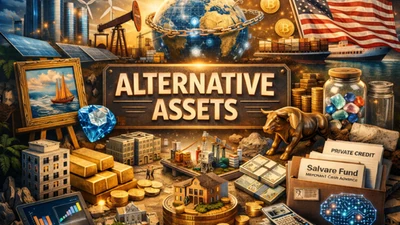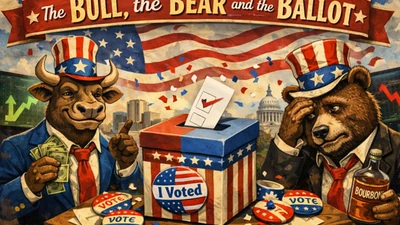President Donald Trump’s tariff hammer dropped hard on April 2, slapping a 25% duty on Canadian imports alongside a 10% baseline on all foreign goods. For Canada, a nation tethered to the U.S. like a remora to a shark, this isn’t just a trade spat—it’s an existential gut punch. From a conservative American perspective, the question isn’t just whether Canada can weather this storm, but whether their decades of cozying up to globalism and neglecting self-reliance have left them too brittle to stand on their own. Spoiler: the odds aren’t in their favor, and that’s a lesson in sovereignty conservatives here should cheer.
Canada’s Economic Lifeline: Too Dependent on Uncle Sam
Let’s start with the numbers—because conservatives respect facts over feelings. Canada sends 75% of its exports to the U.S., according to Statistics Canada, raking in $450 billion annually. That’s oil from Alberta, lumber from British Columbia, and auto parts from Ontario, all flowing south to fuel American industry. In return, they lean on us for 60% of their imports—everything from machinery to consumer goods. Trump’s tariffs, especially that 25% wall on Canada and Mexico, threaten to choke this artery. Energy exports alone, a $100 billion chunk of their economy, face a 10% hit, jacking up costs for U.S. buyers and nudging us toward domestic wells. Conservatives see the play: why prop up Trudeau’s socialism when Texas can drill its own?
Canada’s GDP, a modest $2 trillion, is dwarfed by our $28 trillion behemoth. They’re a mouse next to an elephant, and when the elephant stomps—say, with a trade war—they’re scrambling. The Canadian dollar’s already wobbling, down 2% since the tariff news broke, per X chatter from forex traders. A weaker loonie means pricier imports for Canadians, and with their consumer-driven economy, that’s a recipe for inflation. Conservatives here nod approvingly: reliance on foreign trade is a vulnerability, not a virtue.
Retaliation’s Hollow Threat
Prime Minister Justin Trudeau’s predictable response—slapping counter-tariffs on U.S. goods—sounds tough, but it’s a paper tiger. Canada’s tried this before, targeting American whiskey and steel in 2018. This time, X posts from Ottawa insiders hint at 15-20% levies on U.S. agricultural exports like corn and pork. Fine, but here’s the rub: Canada’s domestic market can’t absorb its own surplus. Take oil—Alberta’s landlocked crude has nowhere to go without U.S. pipelines. Lumber? American housing demand drives that train. Retaliation might sting U.S. farmers short-term, but conservatives know we’ve got bigger markets—like Asia—to pivot to. Canada? They’re stuck with us or bust.
Their manufacturing sector, tightly woven into U.S. supply chains (think auto parts crossing the Detroit-Windsor bridge), can’t just flip a switch. A trade war means layoffs in Ontario factories, and Trudeau’s government—already drowning in $1.2 trillion of debt—can’t afford another bailout. Conservatives here see the contrast: America’s industrial base, bolstered by Trump’s tariffs, can adapt; Canada’s globalist gamble leaves it exposed.
The Socialist Crutch Won’t Hold
Trudeau’s Canada leans hard on government handouts—universal healthcare, bloated public pensions, and green energy boondoggles. Fine in peacetime, but a trade war cuts revenue fast. The Canadian Chamber of Commerce warned on X that a 1% GDP drop (a real risk, per TD Economics) could slash tax receipts by $20 billion. With debt-to-GDP at 60% and deficits piling up, Ottawa’s got no wiggle room. Conservatives here smirk: this is what happens when you bet on nanny-state promises over rugged independence. Trump’s tariffs force Canada to face the music—cut spending or crumble. Good luck selling austerity to a populace hooked on entitlements.
Can They Pivot? Not Fast Enough
Could Canada dodge the bullet by courting new trade partners? China’s an option—Beijing’s hungry for oil and timber—but pipelines to the Pacific aren’t built overnight, and their east coast ports can’t handle the volume. Europe? Too far, too costly. India? Maybe in a decade. The Trans Mountain pipeline expansion, a $25 billion lifeline, won’t be fully online until mid-2026, and even then, it’s a trickle compared to U.S. demand. Conservatives see the irony: Canada’s anti-energy activists, coddled by Trudeau, kneecapped their own escape hatch. Self-inflicted wounds don’t win trade wars.
The Conservative Verdict: Canada’s on Borrowed Time
Canada’s economy isn’t built to withstand a sustained trade war with the U.S.—not with their export reliance, debt load, and socialist baggage. Trump’s tariffs expose their weakness: a nation that hitched its wagon to America’s star without a backup plan. Conservatives here don’t shed tears; we applaud. This is what sovereignty looks like—America prioritizing its own workers, its own industries, while Canada reaps the whirlwind of globalist naivety. Can they sustain themselves? Maybe for a year, maybe two, with gritted teeth and duct-taped finances. But long-term? Not without a miracle or a humbling trip to Trump’s negotiating table.
For American conservatives, this is a win. Canada’s struggle proves tariffs aren’t just economic tools—they’re a wake-up call. Build your own house, or don’t cry when the landlord raises the rent. Trudeau’s flailing is our gain, and that’s a trade deal worth celebrating.










